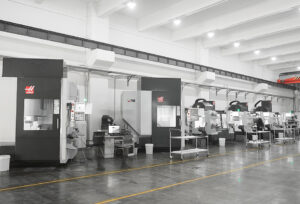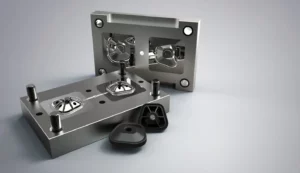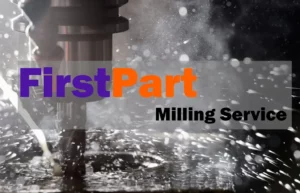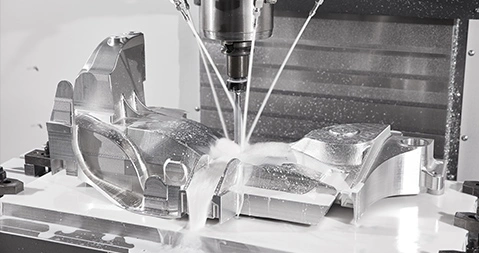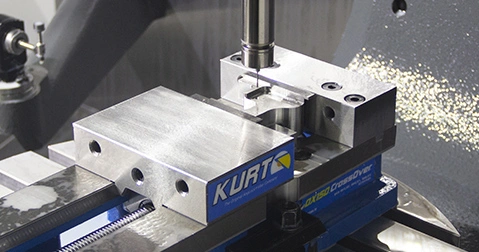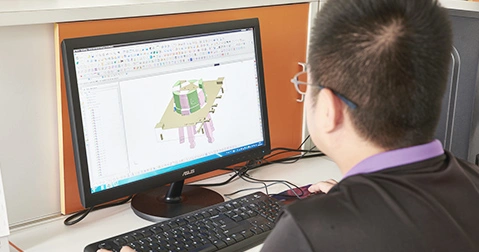CNC machine tools are the heart and soul of every machining operation. From tool size to geometry, length and speed, choosing the right CNC machine tool is consequential to machining engineering and precision manufacturing. CNC machine tools are also important for embedding functionality and machining to precision, attaining certain surface finishes, reducing heat dissipation, ensuring overall product quality and even improving or maintaining the machine lifespan.
Choosing the right CNC machine tools is often a dilemma for the average machinist. This is because there are many characteristics to consider and numerous trade-offs to weigh against one another. In order to make tool selection easier and practical, here’s a rundown of all the things you need to consider before investing in any type of tooling.
Consider the material to be machined
Even the toughest materials are machinable by CNC machining tools. That being said, the nature of material to be machined will determine the tool to be used. This is because each type of material varies in its degree of machinability. The material type will therefore affect the machine design, the type of spindle, the tool life, the tool geometry, the efficiency of the process and durability of the tools to be used. When selecting your CNC machine tool, place high consideration on the part to be manufactured and how your CNC tool will perform when factors like spindle speed, feed rate, torque and horsepower are factored. Choosing the wrong tool will often result in tool breakage, excess chips, heat accumulation and even worse, poor job quality.
Consider the cost and returns on investment
Cost and ROI are two inexcusable factors for any business. In order to make the best decision when buying CNC tools, consider both the fixed and variable cost of the tool as well as the rate of returns on investment.
The fixed costs of a machine tool refers to the cost of purchase, the depreciation cost and the interest on the loan, assuming the purchase was financed from a bank or lending house. The variable costs may include the cost of part replacement, the cost of repairs and servicing, tooling cost, operator cost and servicing costs.
You should also consider the frequency of use with the machine and how much demand is available for the services it is to render. There’s no need tying up capital on a machine that offers low-demand services.
Finally, consider the average cost for the services rendered and how soon you can recover the cost expended on purchasing the machinery or tool. This is what is referred to as the rate of returns on investment (ROI). It is noteworthy that opting for cheaper machinery may not always translate to cost savings especially when quality is involved.
Consider the Machine sophistication
Asides factoring the machinability of the material to be processed, you should consider the extent and range of capabilities that your CNC machine offers. Dealing with complex designs and parts has always been a challenge for CNC-ers. This is because of the strict attention to detail and specific demands of clients in aerospace, medical, automotive and even military fields. Consider the ability of your spindle to cut, bore, shape, drill and mill parts with high precision. Pitting your most common services against the sophistication of the machine can help you determine if your machine shop is fine with a 2, 3 or 5-axis CNC machine.
Consider the CNC control system
The CNC control system can vary from machine to machine. Subtle things like user interface (UI), ease of use, on-screen controls, diagnosis and even language options can make all the difference. The ideal CNC control system should be automated, reliable, comprehensive and straightforward.
Consider the size of your workshop
Availability of space is not often top of the considerations when investing in CNC machines. This is because machine and tool needs vary from workshop to workshop. Nonetheless, you will need to factor in the size of the machine, the space available for it, the positioning and how it might affect safety areas and workways, the chip disposal, material flow from point to point and the space left for operators to navigate after the machine has been installed. You should also consider the space requirement should capacity expansion be considered and availability of high voltage power points for powering the machine.
FirstPart CNC Machining in China
FirstPart is one of China’s leading manufacturing hub for Additive, CNC and Conventional manufacturing techniques. We boast of excellent in-house capacity, labor force and logistics while delivering exceptional value for money. Our array of services include CNC machining, 3D printing, Rapid Tooling, Die casting, Rapid prototyping, Plastic Injection Molding, Urethane Casting, Aluminum Extrusion, Post-machining/Finishing services and much more.
As we understand the challenges that is faced by large- and small-scale businesses, engineers and product developers, we offer both mass production, bridge tooling and low-volume prototyping/manufacturing. Our services are flexible, saleable and innovative, with a team of engineers and design experts available to support you through your entire product development cycle.
Click here to get in touch with us and receive a free quote and project review. To contact us via phone or email, or for all other inquiries, please click here.


